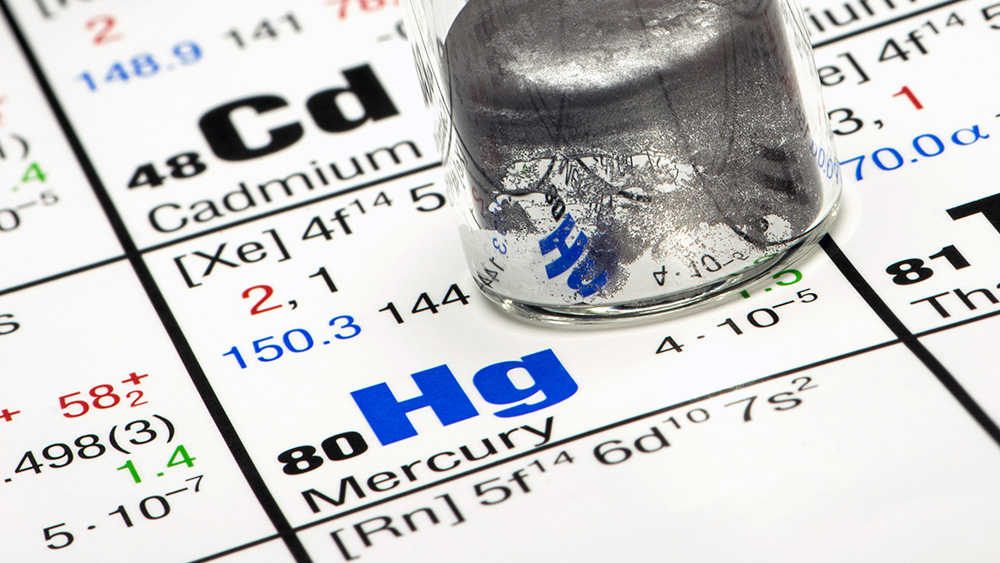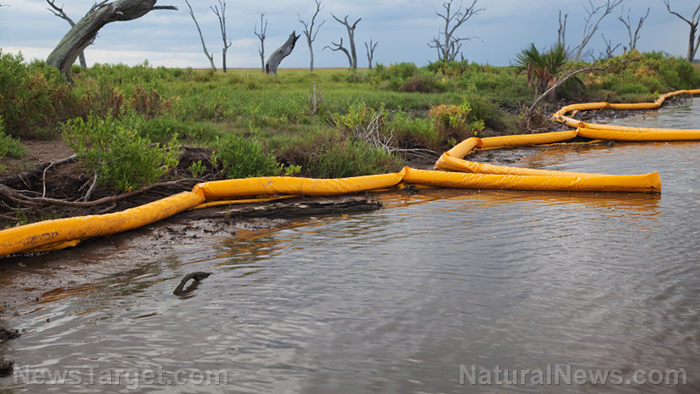We know air pollution contributes to disease; now a new study finds air toxicity also causes psychological stress
12/25/2017 / By Zoey Sky

Studies have shown that air pollution can negatively impact our respiratory health, and researchers from the University of Washington (UW) have recently discovered another adverse side effect of air pollution. Toxic air seems to affect mental health, especially if there is a high level of particulates in the air.
Anjum Hajat, an assistant professor of epidemiology in the UW School of Public Health, said, “This is really setting out a new trajectory around the health effects of air pollution.” Hajat continued, “The effects of air pollution on cardiovascular health and lung diseases like asthma are well established, but this area of brain health is a newer area of research.”
An individual’s residence is a significant factor when it comes to “health and quality of life.” Scientists have determined so-called “social determinants” of physical and mental well-being, like access to healthy foods from local grocers, proximity to nature, or neighborhood security. Air pollution is also linked to behavior changes, such as spending less time outdoors or a more inactive lifestyle, which can be connected to “psychological distress or social isolation.”
The UW study searched for a direct link between toxic air and mental health by examining data from 6,000 respondents from a larger, national, longitudinal study called the Panel Study of Income Dynamics. The scientists then combined an air pollution database with records from the neighborhoods of all the survey participants.
The team looked into measurements of fine particulate matter, which is a substance that comes from car engines, fireplaces and wood stoves, and power plants fueled by coal or natural gas. Since fine particulate matter is less than 2.5 micrometers in diameter, it is easily inhaled. This means it can be absorbed into the bloodstream, making it an even bigger risk than larger particles.
The current safety standard for fine particulates is 12 micrograms per cubic meter, according to the U.S. Environmental Protection Agency (EPA). The researchers from UW studied the time frame between 1999 and 2011, and survey respondents resided in neighborhoods that contained fine particulates which measured 2.16 to 24.23 micrograms per cubic meter. The average level of fine particulates was 11.34. Survey questions related to the UW study measured the participants’ “feelings of sadness, nervousness, hopelessness and the like,” and these were scored using a scale that determined psychological distress. (Related: Air pollution linked to anxiety symptoms covered up by mind-damaging psych drugs.)
Based on the results, the risk of psychological distress was higher whenever the amount of fine particulate matter in the air increased. Researchers controlled for other “physical, behavioral and socioeconomic factors” that might alter an individual’s mental health like “chronic health conditions, unemployment and excessive drinking.”
Primary author Victoria Sass, a graduate student in the Department of Sociology, stressed that some patterns which surfaced, such as race and gender, require further study. This emphasized the need to look into the reason why air pollution affects mental health in specific populations, especially since it was beyond the confines of their research.
Sass commented, “Our society is segregated and stratified, which places an unnecessary burden on some groups.” She added, “Even moderate levels can be detrimental to health.”
Tips to prevent air pollution
Now that the link between air pollution and mental health has been established, here are some tips to lower air pollution:
- Reduce the air pollution of your vehicle – If you’re going out for a drive, don’t leave your car idle. When possible, combine trips, telecommute or carpool. You can also ride a bicycle, walk or commute.
- Save energy – Always unplug appliances when they’re not in use.
- Use eco-friendly products at home – Purchase household products that are free from harmful chemicals.
- Plant more trees – Trees near your home and in your neighborhood can help minimize reduce air pollutants.
- Purchase sustainable products – Buy products from companies that follow sustainable manufacturing practices and help reduce air pollution.
Read more articles on how to minimize air pollution at GreenLivingNews.com.
Sources include:
Tagged Under: air toxicity, breathing, fine particulate matter, fine particulates, mental health, psychological distress, Respiratory System, toxic air



















